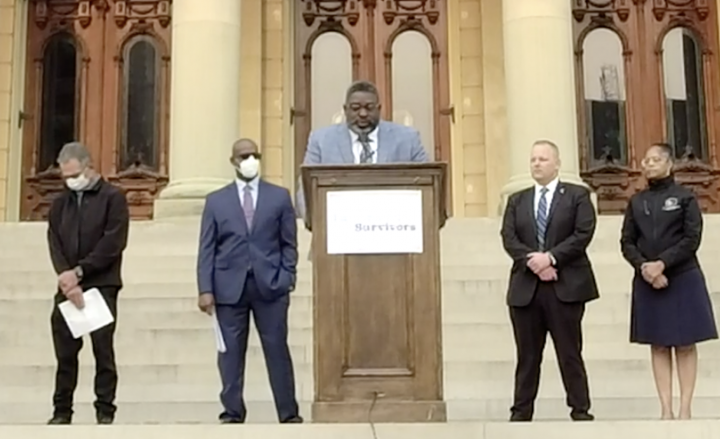Wednesday, September 16, 2020, 10:15 AM
Bills Introduced To Enable Anderson Suits At U-M, Soften ImmunityLegislation to be introduced today in the House will enable the survivors of the sexual abuse committed by Dr. Robert Anderson at the University of Michigan to sue the university and remove the ability for any governmental entity to cite governmental immunity to shield itself from litigation in some circumstances involving an employee who committed criminal sexual conduct. Anderson spent 35 years at the University of Michigan as the director of the University Health Service and later as a team physician for the university’s athletic programs during a 35-year span from 1968-2003. He died in 2008. He was fired as director of the University Health Service in 1979 amid allegations he had sexually abused patients but was kept on at the university in a high-level capacity long afterward. The state’s statute of limitations, set at three years, presents a huge obstacle to Anderson’s victims suing U-M, which has cited the statute of limitations in part in its arguments for the dozens of lawsuits Anderson’s survivors have filed in arguing for those cases to be dismissed and compensation to take place outside of the court system. One of the bills would create a one-year window after enactment for persons sexually abused under the guise of medical treatment to file suit. It is similar to the law enacted allowing the survivors of the sexual abuse of Larry Nassar to sue Michigan State University, though the window would be considerably longer than the 90 days given to the Nassar survivors. MSU and U-M also cited governmental immunity in their defenses against litigation. Michigan law makes governmental entities – everything from the state of Michigan, to local governments to school districts to public universities to community colleges – immune from tort liability other than in cases of gross negligence. Sexual abuse cases involve intent, not gross negligence, said Rep. Ryan Berman (R-Commerce Township), one of the bill sponsors, at a morning news conference on the Capitol steps. The bill would remove immunity in cases of criminal sexual conduct when the government or an employee of the government “knew or should have known that the individual who committed the criminal sexual conduct had committed a prior act of criminal sexual conduct and the governmental agency or employee or agent of the governmental agency failed to act or intervene to prevent the subsequent criminal sexual conduct.” The bill would be retroactively applied to any legal actions pending on the date the bill takes effect. A similar effort to address governmental immunity when the Nassar legislation passed was blocked. WATCH THE PRESS CONFERENCE (Click link)
|



